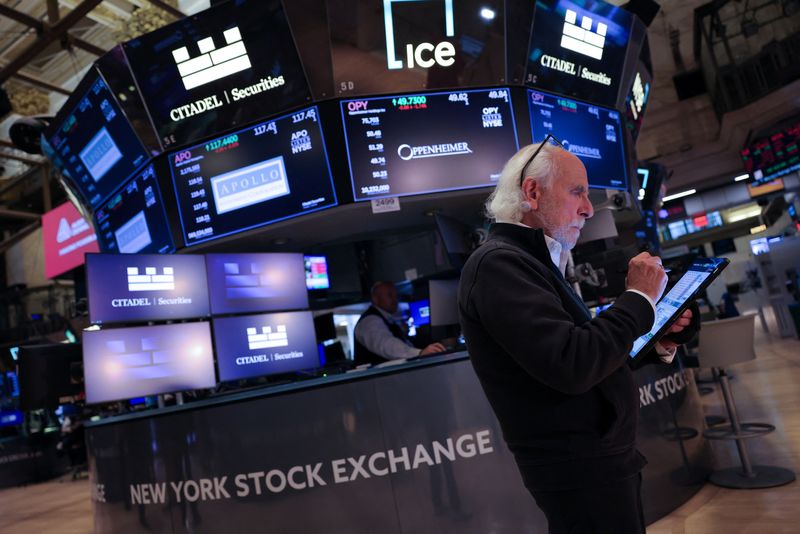Jobs data to test US stock market’s soft-landing hopes
2024.09.27 16:38
By Lewis Krauskopf
NEW YORK (Reuters) – Investor hopes for a soft landing for the U.S. economy will be put to the test next week, as the government releases closely watched labor market data following a series of disappointing jobs reports.
Wall Street’s benchmark is up 20% year-to-date near a record high. With the third quarter ending on Monday, the index is on track for its strongest January-September performance since 1997.
Hopes for a soft landing in which the Federal Reserve tames inflation without badly hurting growth, have helped drive those gains, along with a 50 basis point rate cut the central bank delivered at its monetary policy meeting this month.
Some worry that the rate cuts may not be enough to avert a downturn, and Wall Street views the monthly employment report as one of the more critical reads on the economy. The prior two monthly reports have shown weaker-than-expected job increases, raising the stakes for the Oct 4 data.
“Stocks are priced for a Goldilocks/soft landing-type scenario,” said Wasif Latif, president and chief investment officer at Sarmaya Partners. “The jobs report could potentially either confirm that or derail that.”
Some recent payrolls reports have roiled markets, particularly data showing an unexpected slowdown that helped spark a sharp, days-long selloff in the S&P 500 in early August. The index has since recovered those losses and gone on to make fresh highs.
For the September report due out next week, nonfarm payrolls are expected to have increased by 140,000, according to Reuters data on Friday.
The labor data could help solidify views on the Fed’s next move at its Nov 6-7 meeting. Futures tied to the fed funds rate currently show bets almost evenly split between a 25 basis point cut or another 50-basis-point reduction.
“While the totality of the data will always be important, the burden will be on incoming labor market data to provide the Fed with greater confidence that the softening trend is stabilizing,” economists at Deutsche Bank said in a recent note.
Investors will also watch an address from Fed Chairman Jerome Powell, set to speak on the economic outlook before the National Association for Business Economics on Monday.
Hefty gains in U.S. stocks so far this year bode well for the rest of 2024, if history is any indication.
Since 1950, the S&P 500 has gained at least 15% through September in 17 instances, according to Keith Lerner, co-chief investment officer at Truist Advisory Services. In the fourth quarter of those years, the index rose a median of 5.4% and posted a gain in all but three of them, Lerner found.
Still, the state of U.S. growth is a focus for investors. A survey of fund managers earlier this month named a U.S. recession as the top “tail risk” for markets, according to BofA Global Research.
Garrett Melson, portfolio strategist at Natixis Investment Managers Solutions, said the recent strength in defensive sectors such as utilities and consumer staples reflect concerns over a looming downturn.

Strong economic data, on the other hand, could provide a boost for economically sensitive groups such as industrials and financials, he said. The S&P 500 industrial sector has gained nearly 11% in the quarter, and the financial sector is up around 10%.
“There’s still probably a case to be made that we’ve priced in too much recession risk at this point,” Melson said. “There’s plenty of scope for further upside into year-end.”








